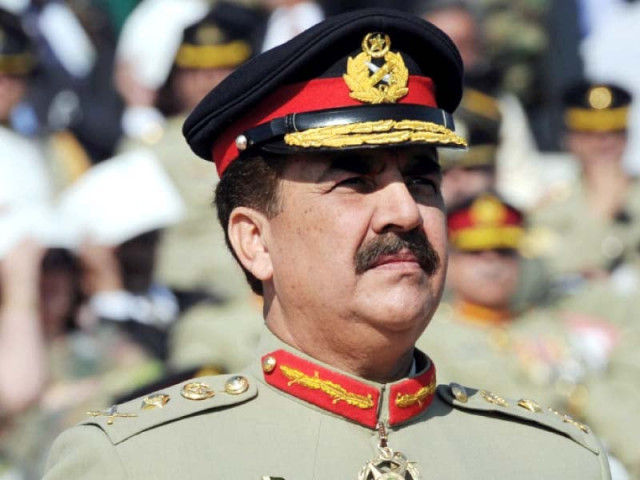Army chief signs death warrants of five terrorists
Convicts were involved in Safoora massacre, Sabeen Mehmood’s murder

Army chief General Raheel Sharif. PHOTO: ISPR
In a statement issued on Thursday, the Inter-Services Public Relations (ISPR) said all five convicts were active members of al Qaeda. The military’s media wing identified the convicts as Tahir Hussain Minhas, Saad Aziz, Asadur Rehman, Hafiz Nasir and Muhammad Azhar Ishrat.
They were handed down capital punishment for their involvement in the Safoora Chowrangi bus attack in May 2015, the murder of Sabeen Mehmood and an improvised explosive device blast near Saleh Masjid Karachi, the ISPR said. “These convicts were tried by military courts,” the military’s media wing added.
Among the convicts is Saad Aziz, who is a graduate from the prestigious Institute of Business Administration (IBA) in Karachi. He was arrested last year on charges of being behind the murder of Sabeen Mehmood, as well as the Safoora Goth attack.
Sabin, who was founder and the director of The Second Floor (T2F) café, was shot dead by gunmen in the upscale Defence Housing Authority neighbourhood of the metropolis on April 25, 2015.
Later that year, in May, six militants stormed a bus carrying members of Ismaili community, killing 45 of them on the outskirts of Karachi.
The ISPR said all the convicts including Saad Aziz admitted their offence before the military courts. Although, convicts were affiliated with al Qaeda, they were believed to be inspired by the self-styled Islamic State terrorist outfit and wanted to establish a caliphate in Pakistan. The latest convictions have brought the number of terrorists awarded death penalty by the military courts now stood at 93. Currently, there are 11 military courts that are operating in the country to prosecute suspects involved in terrorist activities.
Military courts were set up in the wake of deadly terrorist attack at the Army Public School, Peshawar in December 2014. The move was part of the 20-point National Action Plan (NAP) formulated after the APS attack in order to effectively deal with terrorism and militancy in the country.
Published in The Express Tribune, May 13th, 2016.



1733130350-0/Untitled-design-(76)1733130350-0-208x130.webp)















COMMENTS
Comments are moderated and generally will be posted if they are on-topic and not abusive.
For more information, please see our Comments FAQ